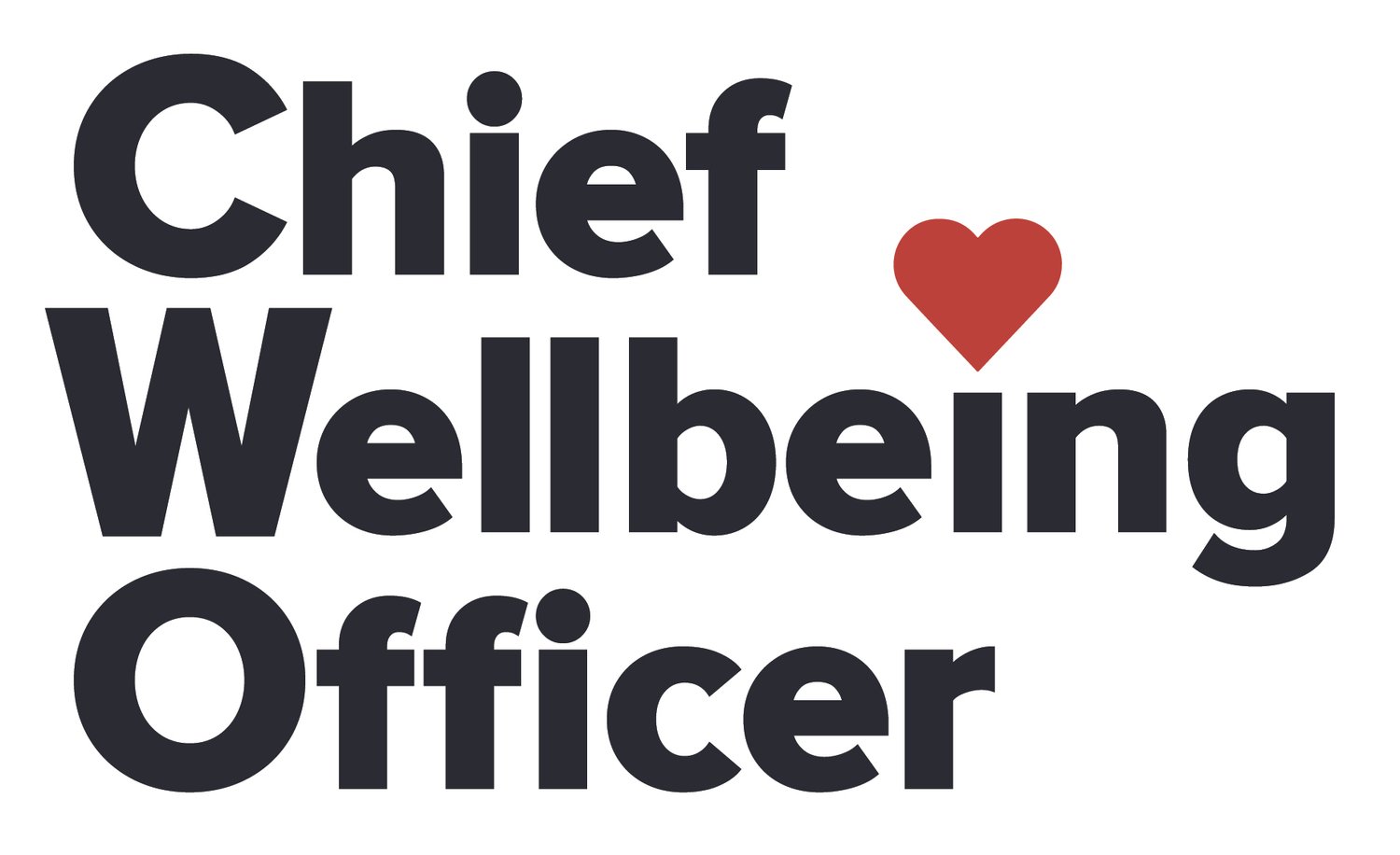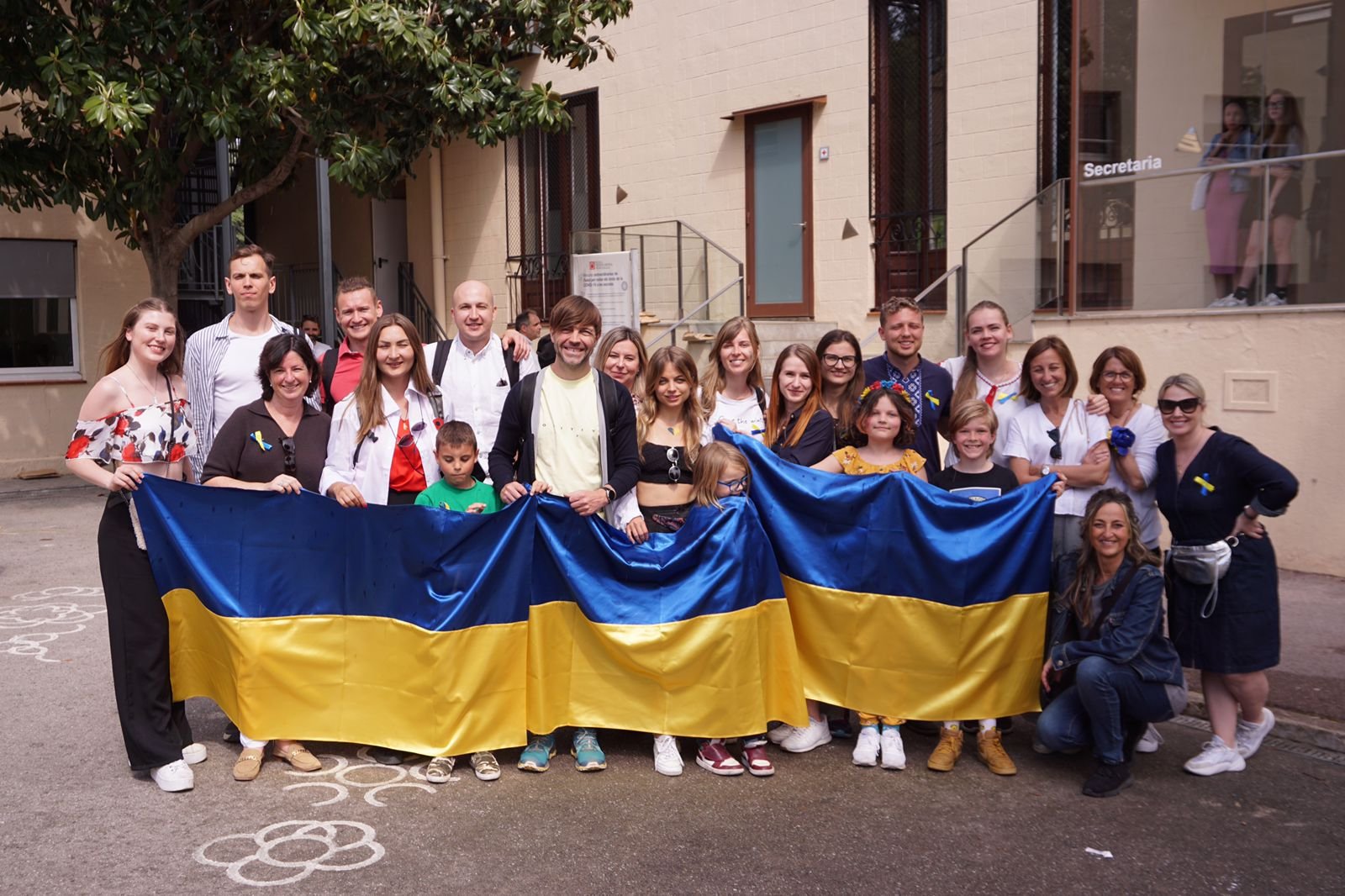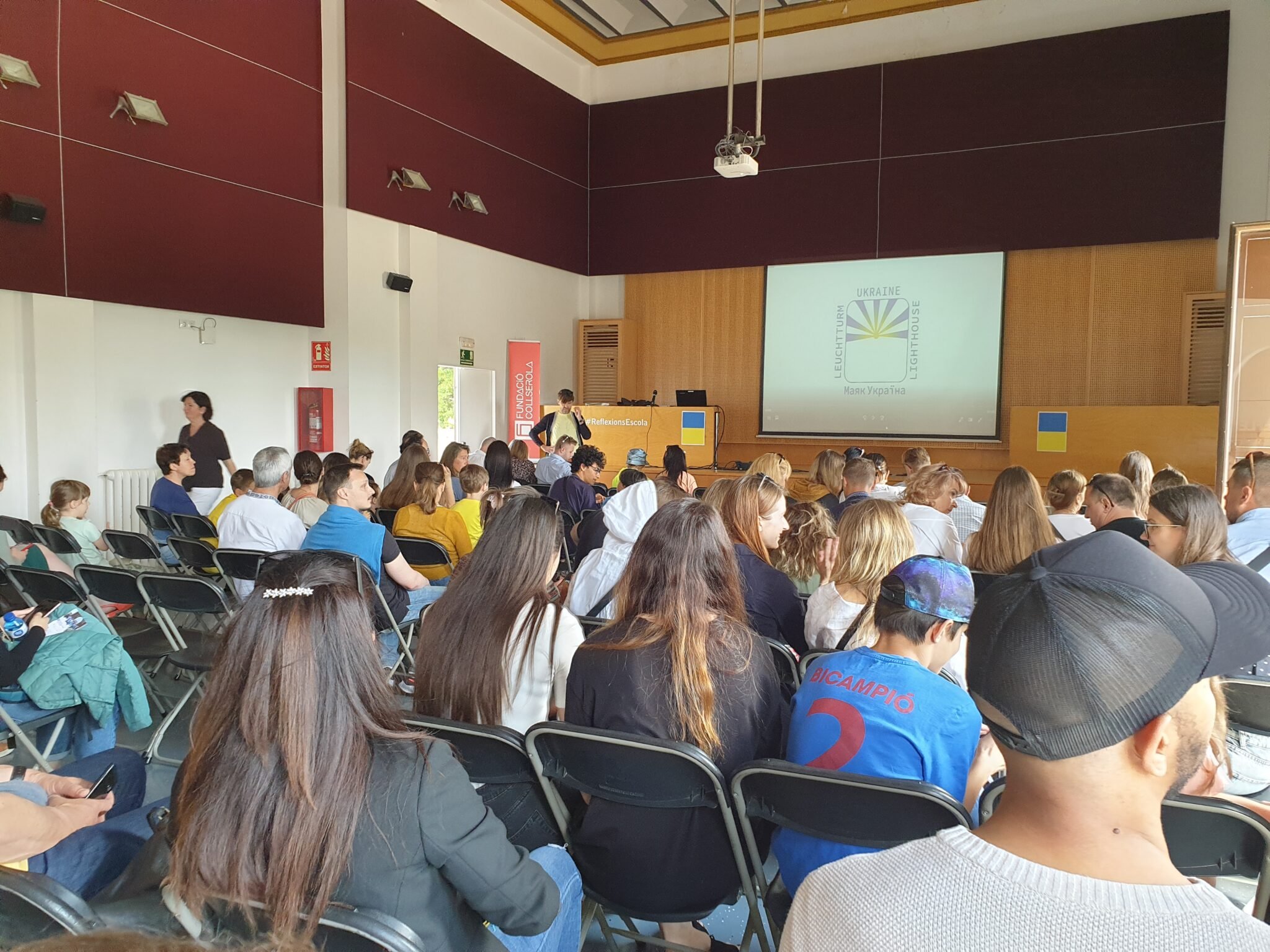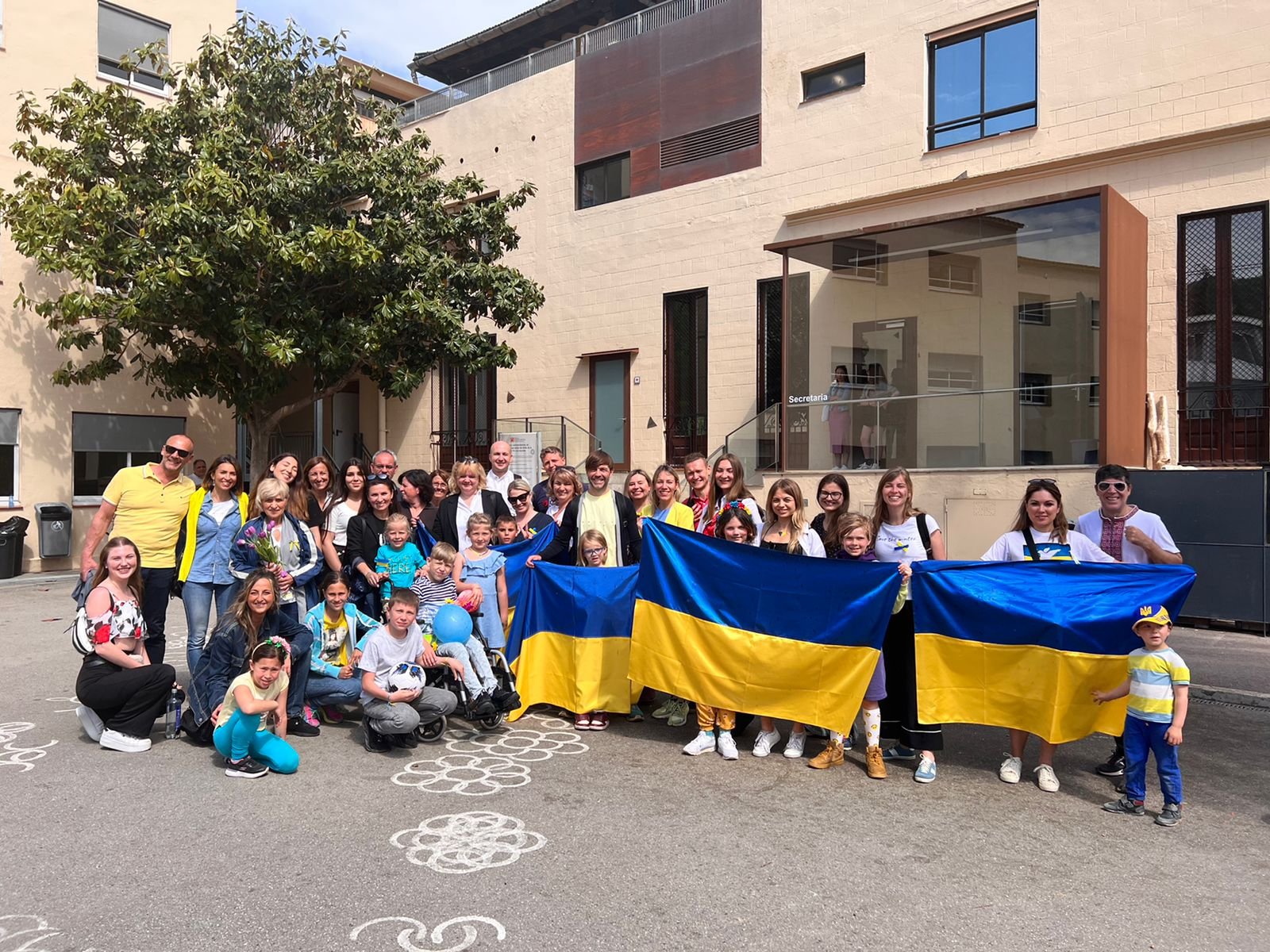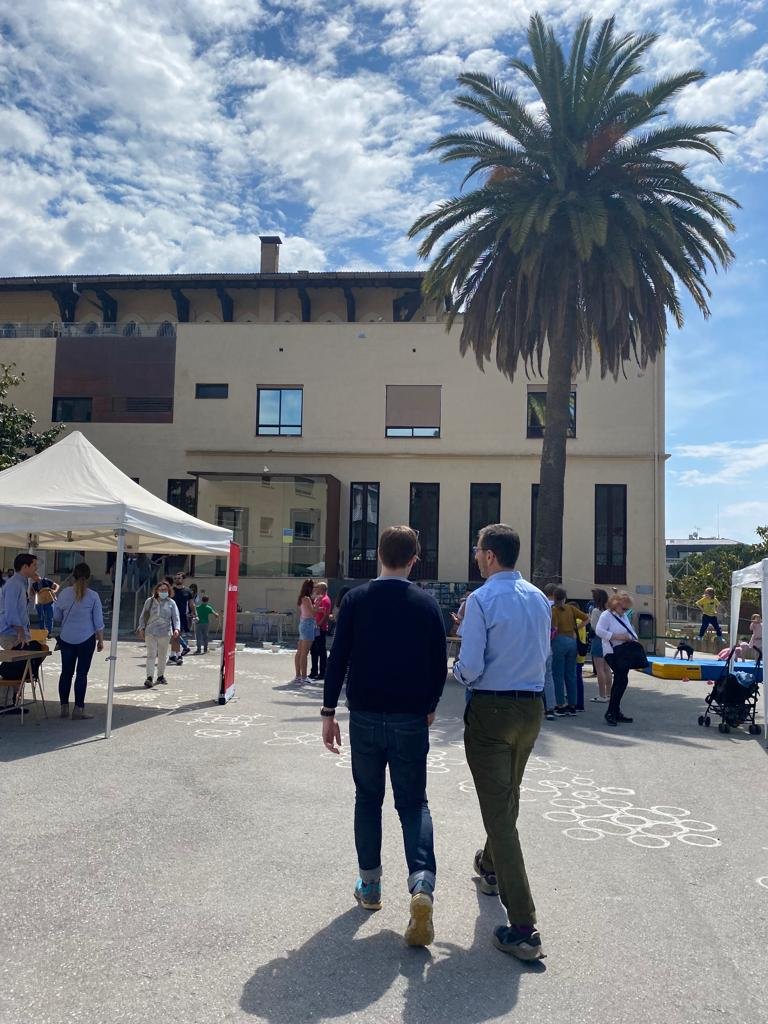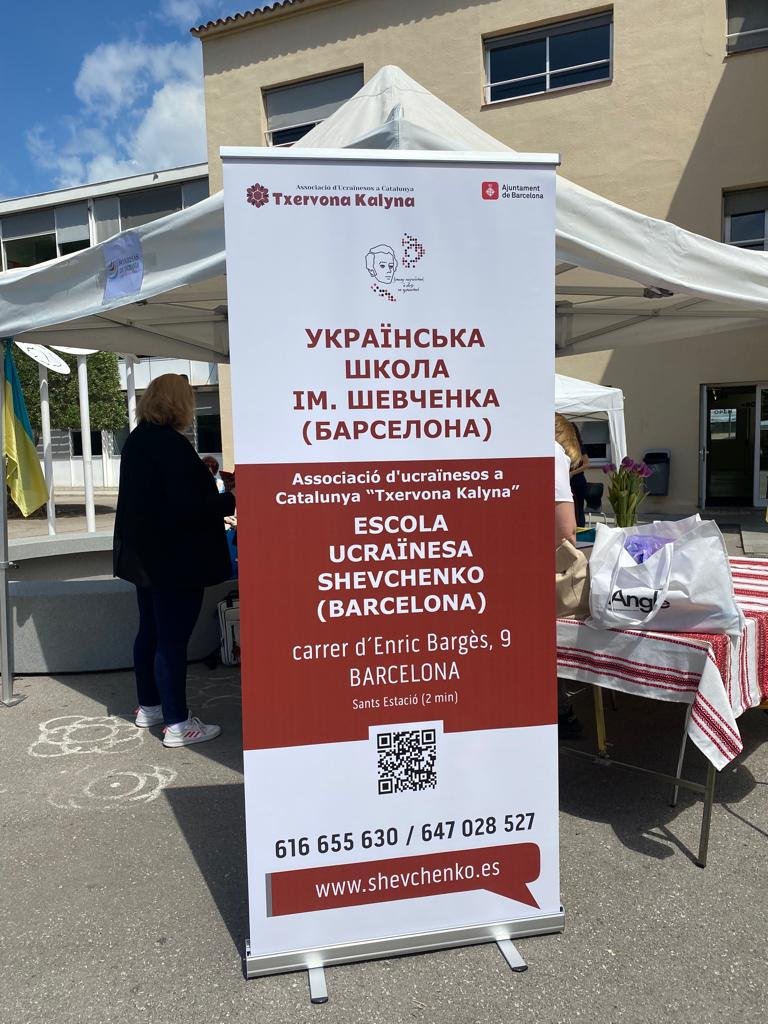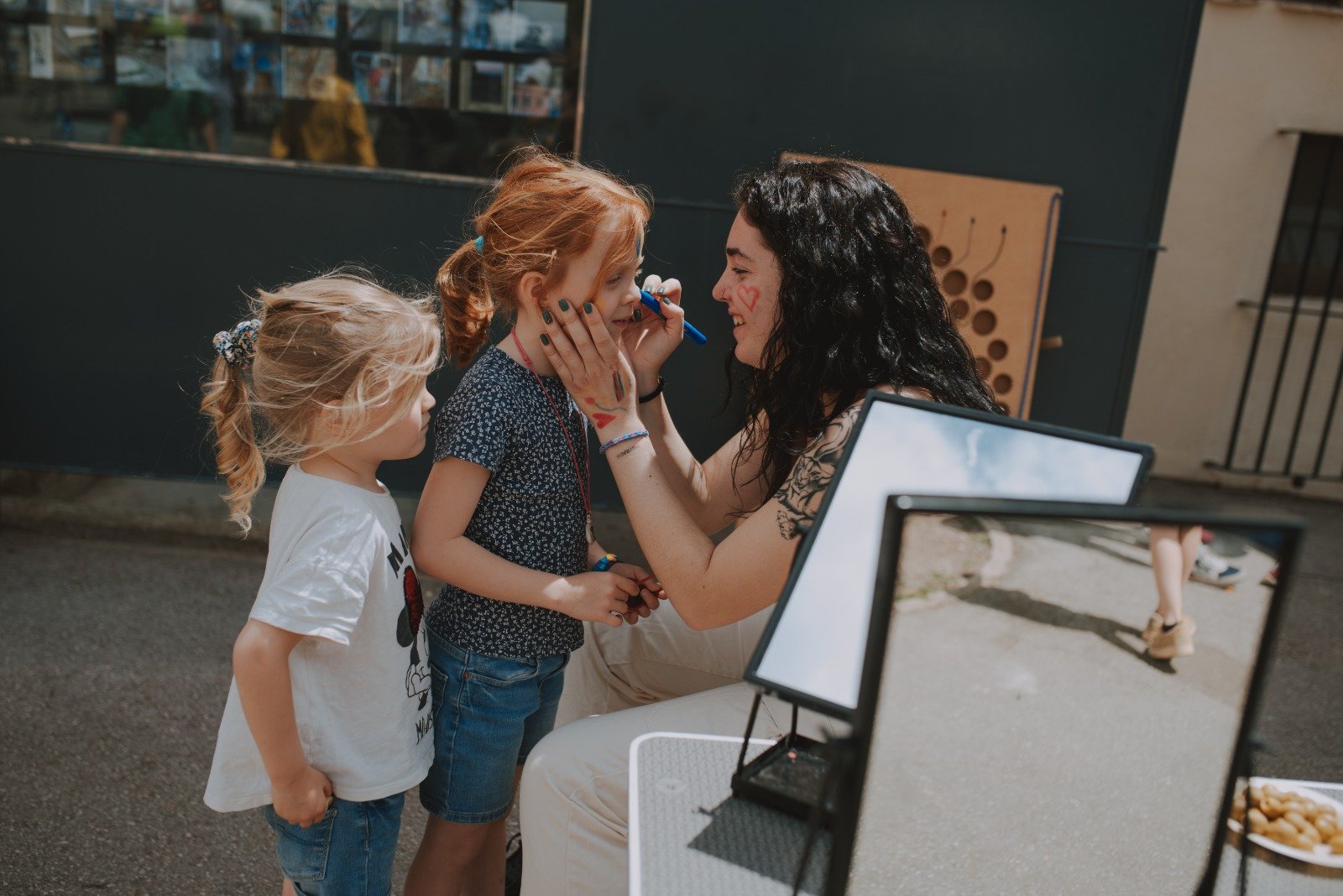Lighthouse Ukraine
Every great story opens the door to a sequel.
Not that a sequel should always happen of course. Sometimes it’s not as good as the original. Maybe it falls flat in some way. For me, I’m so happy, and grateful, that one happened.
It all started with a request: could I organize a Lighthouse event in Barcelona in support of Ukraine? In ten days? Impossible I thought. There’s no time. But I’d try.
The request came from Alliance4Ukraine, an initiative of the German based NGO Project Together. They had staged a hugely successful event in Berlin in April, and wanted to repeat it in other cities in Germany and around the world on 8th May. The significance of the date – the end of the second world war – provided the ten day deadline. There was also a willingness to provide a positive counterbalance through lighthouses around the world the day before an expected address from Vladimir Putin on Russia’s victory day of 9th May.
Over the next ten days I spoke to over a hundred people, sending countless messages. Responses came in two main areas:
Impossible. There’s no time.
Impossible. There’s no time. But let’s try.
The event took place, and was a huge success – over 250 in attendance, mostly displaced Ukrainians, eight speaking slots of high practical value, ten exhibition tables providing support and advice, and dozens of smiling children having fun – because we had enough people in that second group.
A fun family day
Play is the universal language
A safe space
Ready for kick-off
I talked to my wife, Pamela, about the event request in a similar vein to when I told her I was leaving for Ukraine the following day back in March. We knew here was no clear path forward, but we also believed there was no clear reason to say no. We decided to take the first step and see what happened.
As with our March trip, by taking that first step, and then another, the path forward reveals itself. And people come to your aid. My good friend Rory Simpson, who led us on that trip shared a quote from Goethe on the day, as an impossible ask had transformed into a bustling Auditorium:
“Be bold and mighty forces will come to your aid.”
That first mighty force was Fundació Collserola. The first three days after receiving the request were packed with dead-ends and polite declines during my search for an event host. We needed something big, safe, with a technology capability, and of course absolutely free.
I cold-emailed the President of the Foundation, Lutxi Almodovar, acknowledging this was an impossible task, but also that I had learned from the previous trip that magic often happens if you allow it to. She was immediately, fully supportive and brought a perfectly suited organization – not only in the physical space of one of their schools, a safe space for vulnerable families and volunteers who focused fully on the fun and care of children – but in the values of the Collserola Foundation, inclusivity, respect, diversity, which align with those of Alliance4Ukraine. Moltes gràcies Lutxi.
Setting up on the day
A Ukrainian language agenda focused on utility
An idyllic Sunday
Yet even though the path was starting to reveal itself, and we had cleared the first major obstacle of finding a space, there was still anxiety and uncertainty. I had two main fears. First, that no Ukrainians would come – that we’d have an event scattered at best with locals and volunteers. Second, that we would have Ukrainians present, but it would account to no more than a get-together, a Sunday lunch in the sun. Those fears drove me on to ensure they didn’t take materialise.
Finding the Ukrainian network ‘hubs’ in the city was key. Gala Koroleva, President of the Sonrisas Ucrania NGO that we contacted for the road-trip to March opened the door to the Ukrainian community in Barcelona including local associations, volunteers and activists. Denis Tulaydan was another critical member of our emergent team, recruiting others who had a huge impact on the day. Kati McKie, with a Ukrainian family at home, spread the word far and wide, including the hundreds of families staying in hotels all over Catalonia. Sincere thanks to all.
It was standing room only in the 150-capacity auditorium as I opened the speaking agenda. We played a video from Alliance4Ukraine with recorded messages in Ukrainian, German and English from Lighthouse cities around the world. I looked around at the mostly female faces in the audience in front of me. Many were crying.
Hello and welcome to Lighthouse Barcelona
But the tears quickly gave way to intent focus and rich discussion. This was a day to get informed and empowered. I’ve been in countless conferences around the world. I don’t understand a word of the Ukrainian language but I don’t need to, to know that these were some of the best presented, and well-listened to presentations I’ve ever witnessed.
University of Barcelona educated lawyer Igor Lapchinskyi gave a brilliant presentation on understanding the legal and business landscape in Spain. Denis Tulaydan and Pavlo Seimskiy (on finding the right information) Anna Sergiyenko (how to create a great CV), Olena Gvozdeva (volunteering in Barcelona) and Mykhailo Kostur (activisim in Barcelona) all presented in Ukrainian to a packed attentive auditorium. Add in two excellent translated interventions from Banco Santander with Barcelona Zone Director Alex Perez and Randstad Spain with CSR Director Oscar Gutierrez, offering practical advice on banking and finding a job and we had an agenda that provided significant value.
Randstad with Ukraine
Banco Santander with Ukraine
While the kids were having the best play day of their Barcelona lives outside, their mothers were inside getting informed. And this is what they need – to be empowered, not someone’s second hand jeans. The system is not perfect and is obviously creaking at the seams, both here in Barcelona and across Europe. It is up to us, society-at-large, to step in the gap. What is the daily experience for a displaced Ukrainian family? What are the pain points? When moving between hotels every couple of weeks, often at a day’s notice, how can they move forward with their lives?
These were the questions that framed my intentions for the agenda and exhibition tables. And I think we did ok for starters. Armed with the right information and contacts these brave women will lift themselves up. In the few days that have passed since the event and writing these words I’ve already received messages of progress – a job offer, an invaluable contact, a sense of renewed hope. The strengthening of community.
Yet of all the fantastic speeches, the one from 9-year-old Ukrainian refugee Makar, was the best. I had just made a call for everyone to return to the auditorium for the post-lunch session when little Makar walked up and motioned to take the microphone. One of the adults shoo-ed him away but I told them to give him the mic. He was incredibly calm and started to talk in hushed yet confident tones. The large group behind the camera, who had only paid partial attention to me ;) started to gravitate towards him.
Makar, the Royal poet
They were drawn in like a magnet. You could hear a pin drop. Total respect.
One of the Ukrainian speakers made a rough translation in my ear. Makar spoke of the importance of coming together. Times were very hard yes, but together we would be ok.
This little boy, who has suffered terribly in the past few months (details that are not appropriate to be shared here) has a name which means, in the Scots language, poet, particularly a Royal poet. How beautiful is that?
It was indeed a beautiful day. As I left to go home, the final question in the auditorium rang in my ears. It was asked by Denis Tulaydan as I formally closed the day. When will the next Lighthouse Barcelona event take place?
A sequel becoming a series? Now that really would be something.
Sláva Ukrayíni!
A huge thanks to Onufrii Lonevskyi, the glue who held all the Lighthouses together.
